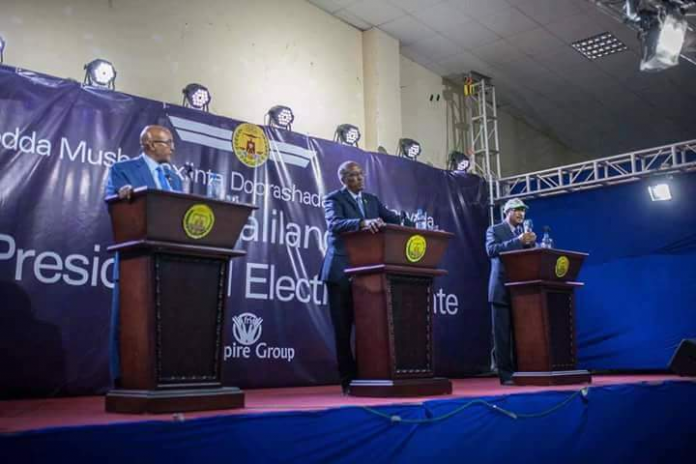Somaliland elections will present voters with tough choices. 2017 elections differ from 2010 elections in several aspects. The ruling party’s presidential candidate is not a president seeking reelection; the ruling party’s main rival, Waddani, is a party formed in 2012, ten years after the formation of Kulmiye. UCID, one of the the first three parties of Somaliland, is campaigning on a youth empowerment and partly on reconciliation ticket for the role the party leader played in Ainaba agreement.
Waddani promises to reverse privatisation decisions made by the ruling party. When Somaliland MPs were debating a bill to privatise Berbera Port, Wadda
In 2010 Abdirahman was a member of a party that made him the Speaker of Somaliland Parliament (2005-2017). When he became a leader of a new national party he had refused to step down to allow UCID to appoint a successor. Kulmiye party ensured Abdirahman remained the speaker of the party for fear of a stronger UCID party that could gain from many years of political campaigning and a fundamental role in democratisation process in Somaliland.
The stakes in 2017 Somaliland are higher; the choices for voters tougher. Somaliland political class has had a plenty of time to debate the merits of an electoral system that has a place for a coalition government. Until such an opportunity arises, Somaliland deserves a leader who is campaigning on genuine reforms ticket, not an unpopular ruling party or its copycat rival party. To use a racing metaphor, Waddani’s election manifesto puts Kulmiye in a pole position.
By Liban Ahmad




























